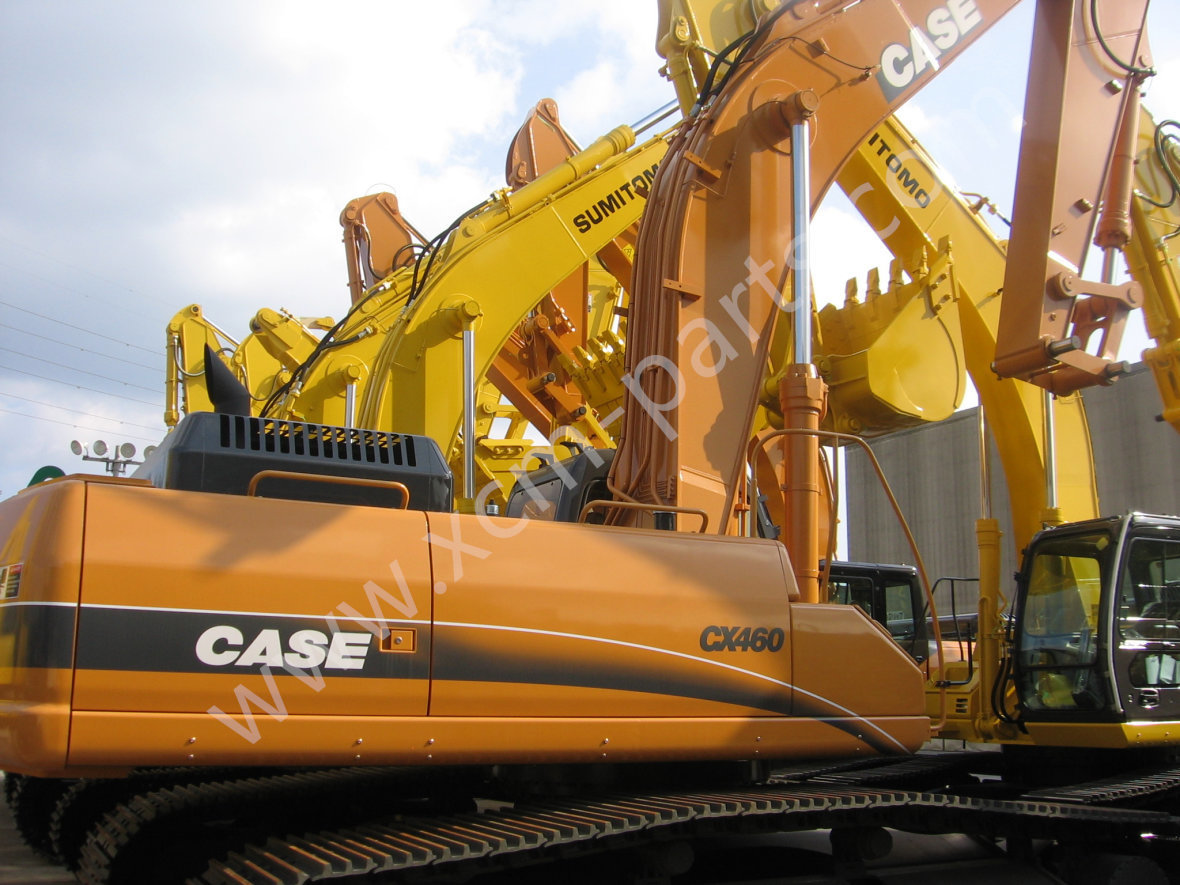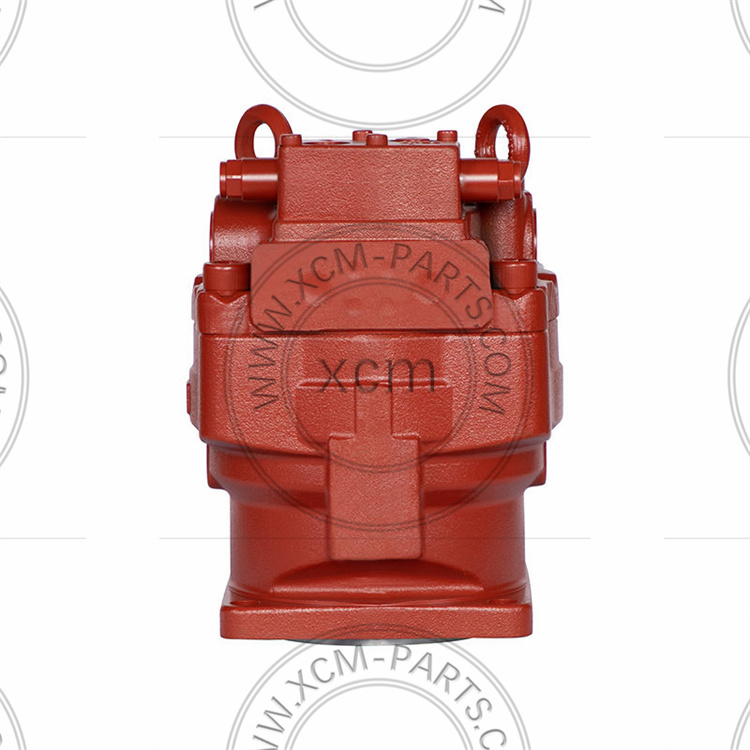29
2025
-
01
Breaking Ground: The Future of Excavator Motors in Construction
Breaking Ground: The Future of Excavator Motors in Construction
Table of Contents
- 1. Introduction to Excavator Motors
- 2. Historical Overview of Excavator Technologies
- 3. Current Technological Advancements in Excavator Motors
- 4. Sustainability in Excavator Motor Design
- 5. Impact of Automation on Excavator Performance
- 6. Future Trends in Excavator Motors
- 7. Challenges Faced by Excavator Manufacturers
- 8. Conclusion
- 9. Frequently Asked Questions
1. Introduction to Excavator Motors
Excavators play a crucial role in the construction industry, serving as multi-functional machines that perform a variety of tasks, from digging and lifting to demolition and grading. At the heart of these powerful machines lies the excavator motor, a component that significantly affects efficiency, productivity, and environmental impact. As we delve into the future of excavator motors, we will explore the innovative technologies shaping their evolution, the drive towards sustainability, and the potential challenges that lie ahead.
2. Historical Overview of Excavator Technologies
The history of excavators dates back to the early 19th century, with the introduction of steam-powered machines. Over the decades, excavators have transitioned from steam to diesel-powered engines, leading to significant enhancements in power and efficiency. By the late 20th century, hydraulic systems began to dominate the market, providing operators with better control and versatility. Understanding this evolution sets the stage for recognizing the current advancements in excavator motor technology.
2.1 The Shift from Diesel to Electric
In recent years, there has been a notable shift from traditional diesel engines to electric motors in excavator designs. This transition not only reduces carbon emissions but also improves operational efficiency. Electric motors require less maintenance and offer a quieter operation, making them ideal for urban construction sites.
3. Current Technological Advancements in Excavator Motors
The construction industry is currently witnessing several technological advancements that are revolutionizing excavator motors. These innovations enhance performance, improve fuel efficiency, and contribute to eco-friendly practices.
3.1 Hybrid Excavator Motors
Hybrid technology combines traditional diesel engines with electric power, providing a flexible solution that optimizes fuel consumption. This technology allows excavators to operate efficiently across various tasks while reducing their carbon footprint.
3.2 Advanced Control Systems
Modern excavators are equipped with advanced control systems that utilize sensors and artificial intelligence (AI). These systems allow for precise movements and automate several functions, improving overall operational efficiency and reducing the likelihood of human error.
3.3 IoT Integration
The Internet of Things (IoT) plays a significant role in the future of excavator motors. IoT-enabled excavators can communicate with other machinery, providing real-time data on performance and maintenance needs. This connectivity helps companies optimize their fleet management and reduce downtime.
4. Sustainability in Excavator Motor Design
As environmental concerns continue to rise globally, manufacturers are increasingly focusing on sustainability in excavator motor design. This includes not only the use of cleaner energy sources but also considerations for the entire lifecycle of the machine.
4.1 Use of Recyclable Materials
Manufacturers are now prioritizing the use of recyclable materials in the production of excavator motors. This shift not only reduces waste but also promotes a circular economy within the construction industry.
4.2 Energy Efficiency Standards
The development of stricter energy efficiency regulations is pushing manufacturers to innovate. New excavator models are designed to meet these standards, ensuring that they consume less energy while maintaining high performance.
5. Impact of Automation on Excavator Performance
Automation is fundamentally changing how excavators operate. With advancements in robotic technology and AI, the future of excavator motors is not merely about better engines but also about enhancing the overall user experience.
5.1 Remote Operation
Remote operation capabilities allow operators to control excavators from a distance, enhancing safety and efficiency. This technology is particularly beneficial in hazardous environments where human presence can pose risks.
5.2 Predictive Maintenance
Automation also facilitates predictive maintenance, where data analytics are used to foresee potential issues before they lead to machine failures. This proactive approach minimizes downtime and reduces maintenance costs.
6. Future Trends in Excavator Motors
Looking ahead, several trends are likely to shape the future of excavator motors in the construction sector.
6.1 Transition to Hydrogen Fuel Cells
As the industry continues to seek sustainable alternatives, hydrogen fuel cells are emerging as a potential future power source for excavators. This technology promises zero emissions and could revolutionize the way excavators are powered.
6.2 Enhanced Operator Interfaces
Future excavators will feature even more advanced operator interfaces, incorporating augmented reality (AR) and virtual reality (VR) technologies to improve training and operational precision.
7. Challenges Faced by Excavator Manufacturers
Despite the promising advancements, excavator manufacturers face several challenges in the adoption of new technologies.
7.1 High Initial Costs
The initial investment in advanced technologies, like hybrid systems and automation, can be prohibitive for many companies, particularly smaller firms. Finding ways to balance innovation with cost-effectiveness will be crucial for widespread adoption.
7.2 Skill Gap in Workforce
As excavators become more technologically advanced, there is a growing need for skilled operators who can work with these new systems. Bridging this skills gap will be essential for maximizing the potential of modern excavator motors.
8. Conclusion
The future of excavator motors in construction is bright, characterized by innovation, sustainability, and automation. With ongoing advancements in technology, we can expect to see more efficient, environmentally friendly excavators that meet the evolving needs of the construction industry. By embracing these changes, manufacturers can enhance operational efficiency while contributing to a more sustainable future.
9. Frequently Asked Questions
What are the main advantages of hybrid excavators?
Hybrid excavators offer improved fuel efficiency, reduced emissions, and lower operating costs compared to traditional diesel models.
How is automation changing the construction industry?
Automation enhances efficiency, reduces the potential for human error, and allows for remote operation, increasing safety on job sites.
What role do IoT and data analytics play in excavator performance?
IoT and data analytics provide real-time performance insights, enabling predictive maintenance and optimizing fleet management.
Are electric excavators as powerful as diesel models?
Yes, advances in battery technology and electric motors have made electric excavators increasingly powerful and capable of handling a wide range of tasks.
What are the challenges of adopting new excavator technologies?
Challenges include high initial costs, potential skill gaps in the workforce, and the need for infrastructure to support new technologies.
This comprehensive exploration of the future of excavator motors highlights the potential for innovation and sustainability to transform the construction industry, paving the way for enhanced efficiency and environmental responsibility.
excavator motor
undefined
The Art of Customizing Crawler Excavator Parts to Improve Performance
The Art of Customizing Crawler Excavator Parts to Improve Performance Table of Contents 1. Introduction to Crawler Excavator Customization 2. Understanding Crawler Excavator Parts 2.1 Types of Crawler Excavator Parts 2.2 The Importance of Customization 3. Customization Techniques for Enhanced Performance 3.1 Upgrading Hydr
Understanding the Function and Importance of Excavator Relief Valves
Excavator relief valves are integral components of hydraulic systems used in various engineering and construction machinery. Their primary function is to regulate and control the pressure within the hydraulic circuits, ensuring the safe and efficient operation of the excavator. When hydraulic pressure exceeds a predetermined limit, the relief valve opens to divert excess fluid, preventing potentia
Breaking Ground: The Future of Excavator Motors in Construction
Breaking Ground: The Future of Excavator Motors in Construction Table of Contents 1. Introduction to Excavator Motors 2. Historical Overview of Excavator Technologies 3. Current Technological Advancements in Excavator Motors 4. Sustainability in Excavator Motor Design 5. Impact of Automation on Excavator Performance 6. Future Trends in Excavator Motors 7. Challenges Fa















